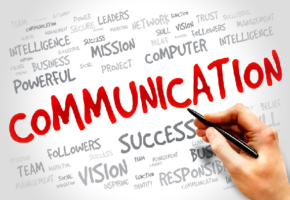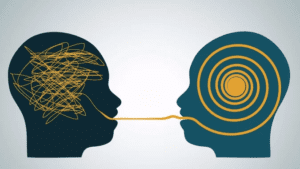General Workshops
These workshops are listed in alphabetical order rather than in order of importance
Total Focus can write a workshop on your behalf
Communication Skills
(professional)
I Day Workshop

Aims of this workshop
Candidates understand the importance of professional communication skills and the impact of excellent communication in both an internal & external communication process.
Learning objectives include
- Communicating for your success
- Examining communications skills both verbal & non- verbal
- Identify your levels of listening to improve your listening skills.
- Responsibilities and accountability as an individual for your communication.
- Formal & informal communications
- Focusing on empathy (rather than sympathy) as a communication tool
- Your own plan to improve your communication skills both professionally and personally.
Emotional Intelligence
1/2 Day Workshop

Aims of this workshop
To assist participants to use emotional intelligence in the day to day running of their work and businesses.
Learning objectives include
- Defining emotional intelligence (EQ / EI)
- Understanding the four pillars of emotional intelligence (1) self-awareness (2) self-management (3) social awareness (4) relationship management
- Insight into our amazing brains
- Comprehending how emotional intelligence affects your interaction with others including colleagues & customers.
- Leading team with emotional intelligence for team & organisational success
Listening Skills – (Active)
1/2 Day Workshop

Aims of this workshop
Effective listening is crucial to good communication, and good communication is critical to the success of any organisation. In fact, active listening is the corner stone of communication.
Learning ovbjectives include:
- What is active listening?
- Where does listening fit into the verbal and non-verbal communication process?
- Different levels of listening.
- The difference between hearing and listening.
- Listening face to face and listening on the telephone, and on-line.
- How to develop an empathic relationship!
- Confidentiality and reassurance.
- Barriers to effective listening.
- How to respond when listening.
- Learning active listening skills including paraphrasing, summarising and
Negotiating difficult situation and understanding / dealing with people we have difficulty with
1/2 day workshop

Aims of the workshop
To equip attendees to deal with challenging situations and people in the workplace in an appropriate manner.
Learning objectives include:
- Recognising (and preventing) difficult situations happening in the workplace
- Understanding what drives other peoples’ behaviour and your own.
- Learning to listen and prevent our own biases and behaviours from accelerating others’ situations & behaviours.
- Discovering how to deal with feedback / criticism from others.
- Putting issues into perspective to achieve excellent outcomes.
- Preparing & executing feedback to deal with difficult situations and people we have difficulty with.
- Challenging situations and behaviours converting into conflict situation – how do you and other deal with conflict as these effects the outcomes of the challenging situations and behaviours.
Stress Management
1/2 day workshop

Aims of the workshop
Everyone will experience stress in the workplace for one reason or another, it is a common factor in all forms of employment. The workshop is designed to assist participants to recognise causes of stress. Attendees learn useful tips on how to manage stress and minimise the negative aspects.
Leraning objectives include
- Definition of stress, causes, and possible stress outcome.
- Eustress (good stress) vs distress (bad stress)
- Exploring strategies for controlling stress. Learn to control your body, thoughts, and actions during stressful situations and with people who are causing you stress.
- Building your self-reliance
- Desk exercises for relieving stress and other tools to decrease your stress and give you better health.
Personal Effectiveness
1 day workshop

Aim of this workshop
Participants can understand personal effective both in their professional and private lives. Having set their goals, how to achieve them and the role of self-responsibility in this achievement.
Learning objectives include
What is personal effectiveness?
Personal effectiveness through life coaching!
How do I set goals?
SMART goals
Overcoming self-sabotage recognising your inner critic /gremlin
What are YOUR core values? What makes you tick… Why are these values important?
What is a belief? What are your beliefs? Can some of your beliefs limit you?
What are we afraid of?
Personal responsibility
Self – responsibility and the BSE T- shirt
